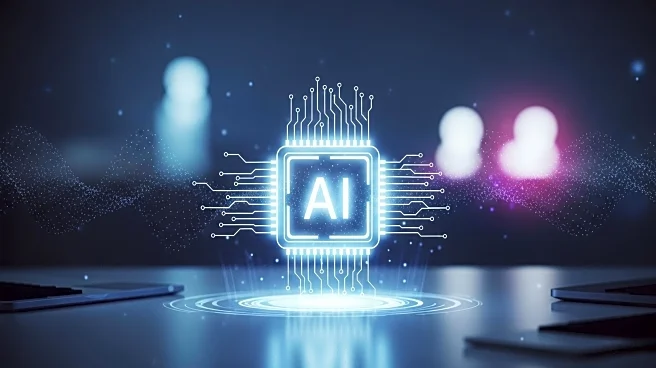What's Happening?
OpenAI has released a new benchmark called GDPval to assess AI performance on economically valuable, real-world tasks across 44 different jobs. This initiative aims to provide evidence-based evaluations of AI capabilities in workplace settings, moving beyond abstract academic problems. The benchmark spans nine industries contributing significantly to the U.S. GDP, including real estate, government, manufacturing, and finance. Professionals from these sectors designed tasks for the evaluation, which were then graded by experts to compare AI-generated deliverables with human-produced ones. The results indicate that AI models are approaching the quality of work produced by human experts, with some models outperforming others in specific tasks.
Why It's Important?
The introduction of GDPval is significant as it addresses the gap in evaluating AI's practical utility in workplace settings. By focusing on real-world tasks, OpenAI aims to provide a more accurate measure of AI's impact on productivity and efficiency. This could influence how businesses invest in AI technologies, potentially leading to more informed decisions and better integration of AI in various industries. The benchmark also highlights areas where AI excels and struggles, offering insights into future development and application strategies.
What's Next?
OpenAI plans to continue refining GDPval to track improvements in AI models over time. This ongoing evaluation could lead to advancements in AI capabilities, particularly in tasks where current models underperform. Businesses and industries may respond by adjusting their AI strategies, focusing on areas where AI can enhance productivity and efficiency. Additionally, the benchmark could influence policy discussions around AI's role in the workforce, potentially leading to new regulations or guidelines.
Beyond the Headlines
The development of GDPval raises ethical considerations regarding AI's role in the workplace. As AI models become more capable, there is a risk of displacing human workers, particularly in routine tasks. This could lead to broader societal impacts, including shifts in employment patterns and the need for retraining programs. The benchmark also underscores the importance of transparency in AI evaluations, ensuring that stakeholders understand the capabilities and limitations of AI technologies.











